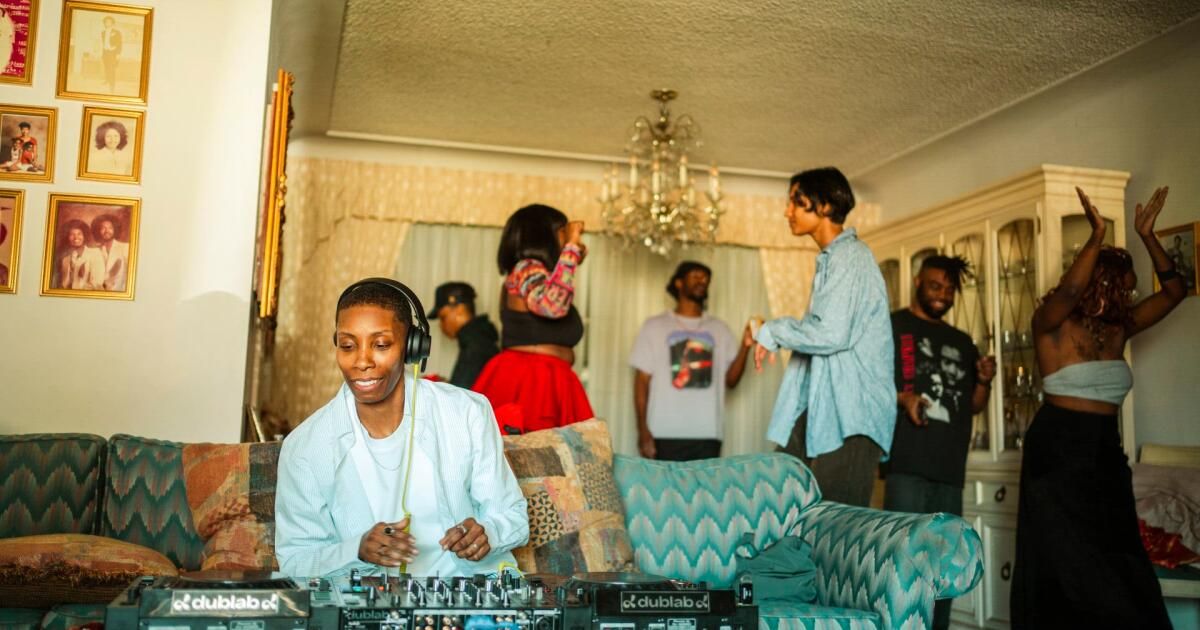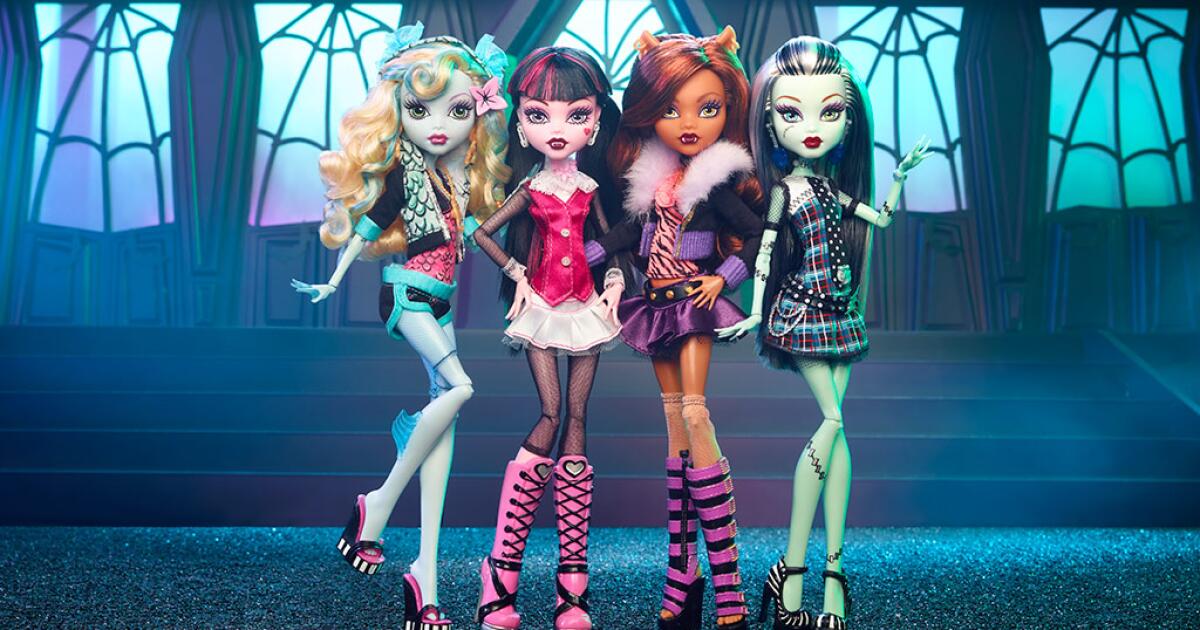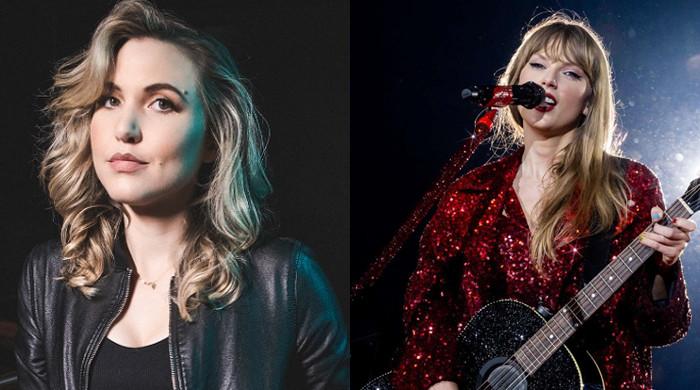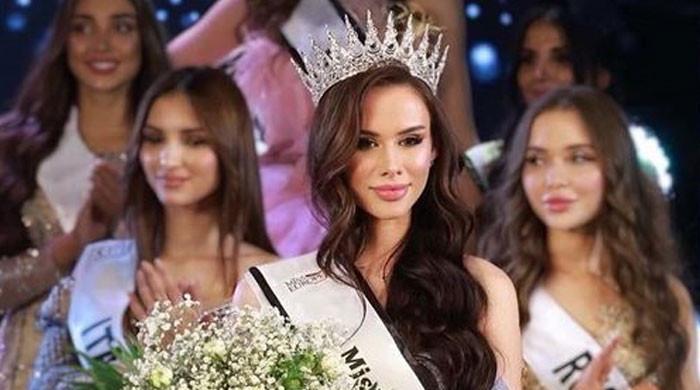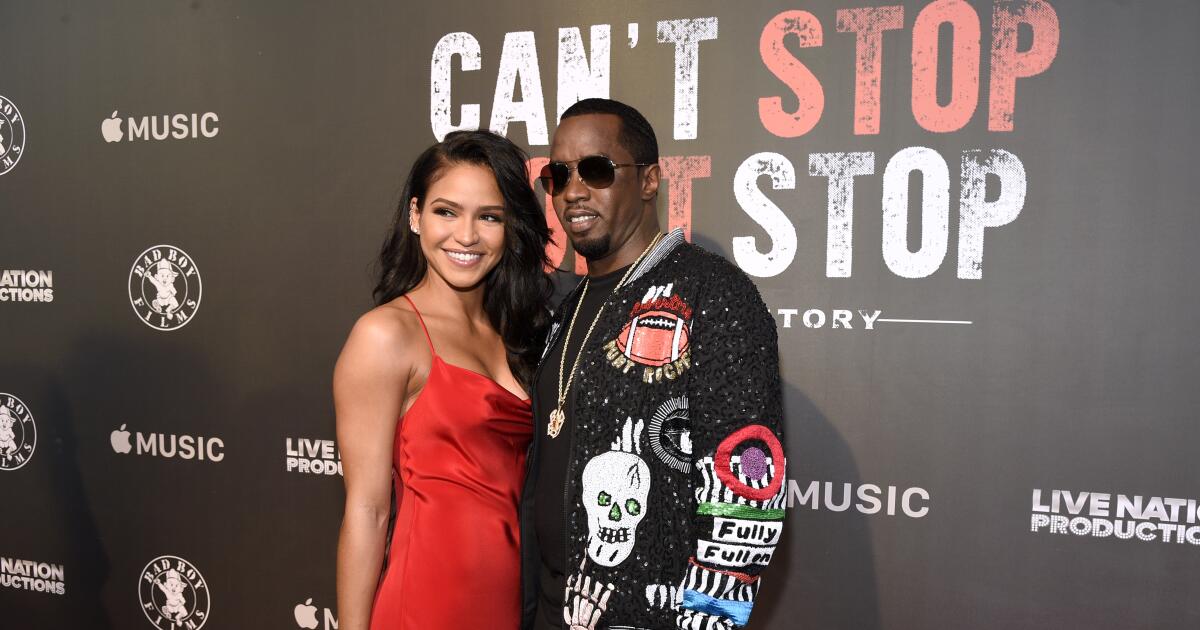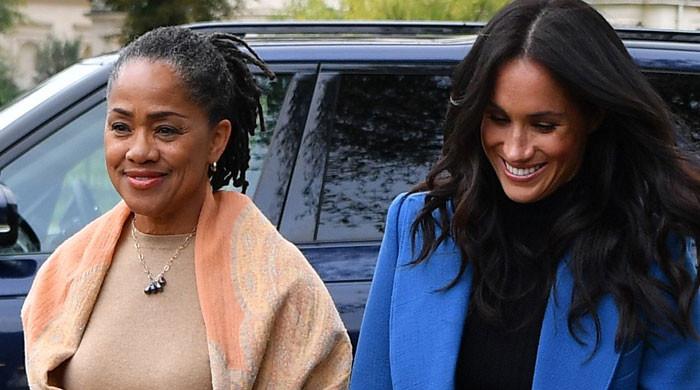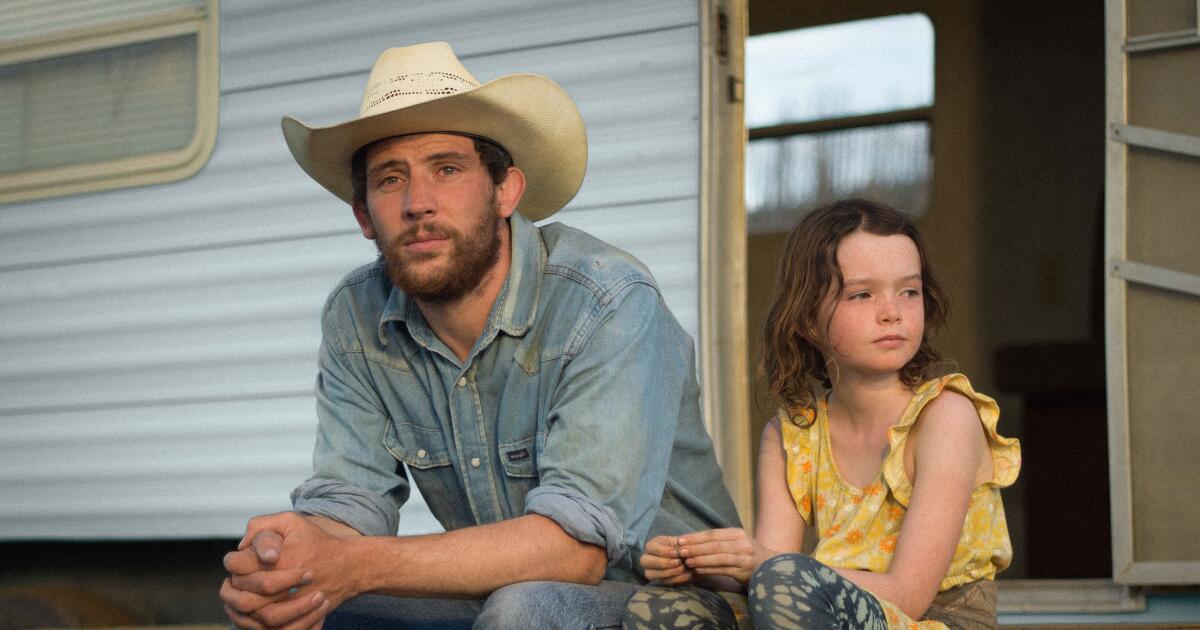On a breezy Saturday afternoon in South Los Angeles, the sounds of kick drums and electric handclaps drift from a tan two-story house with a manicured lawn. Through the large front window, passersby can see a DJ in a dimly lit living room, meticulously turning knobs on a mixing board and mixing house music records. In the dining room, about 15 people dance and socialize under a crystal chandelier. Dark liquor flows into red glasses. A man sits between a woman’s legs as she braids his hair into cornrows, while another guest bangs a tambourine in time to the music.
From a distance, this scene may look like a typical house party, which is exactly the appeal of “Black House Radio,” a YouTube show and event series in Los Angeles that focuses on black DJs who specialize in house music. During the gathering, no one pays much attention to the cameras rolling, and for the hundreds of thousands of viewers at home, watching the videos feels like they’ve been taken to a high-octane gathering.
Winston plays on Black House Radio.
At a time when DJs are showcasing their skills in creative ways and in sometimes unexpected settings, parksin elevatorsin it beachinside loft apartmentsin it Underground and in laundries — “Black House Radio” stands out for its familiar charm and devotion to the genre it highlights.
“I want 'Black House Radio' to feel like a warm, nostalgic hug from a grandmother,” says founder Michael Donte, who is also a filmmaker, producer and DJ. He hosts the intimate gathering about once a month at his best friend Jeremy's ancestral home, which his late grandparents purchased in 1963 after moving to Los Angeles from Millport, Alabama, during the Second great migrationEverything in the house, including a blue patterned sofa, a teal rug, vintage curtains and framed family photos, is in the same place it has been since the 1970s.
“Black house music was made in our houses,” Donte says. He adds that he was frustrated when he went out and saw more white DJs being booked to play house music than black artists, who created and popularized the genre in the 1970s. Aside from select events like newcomers TheyHouse and Utopia, which have been elevating house music in Los Angeles for years.[A white DJ is] “It’s very different from a black person playing house music: it’s just a feeling.”
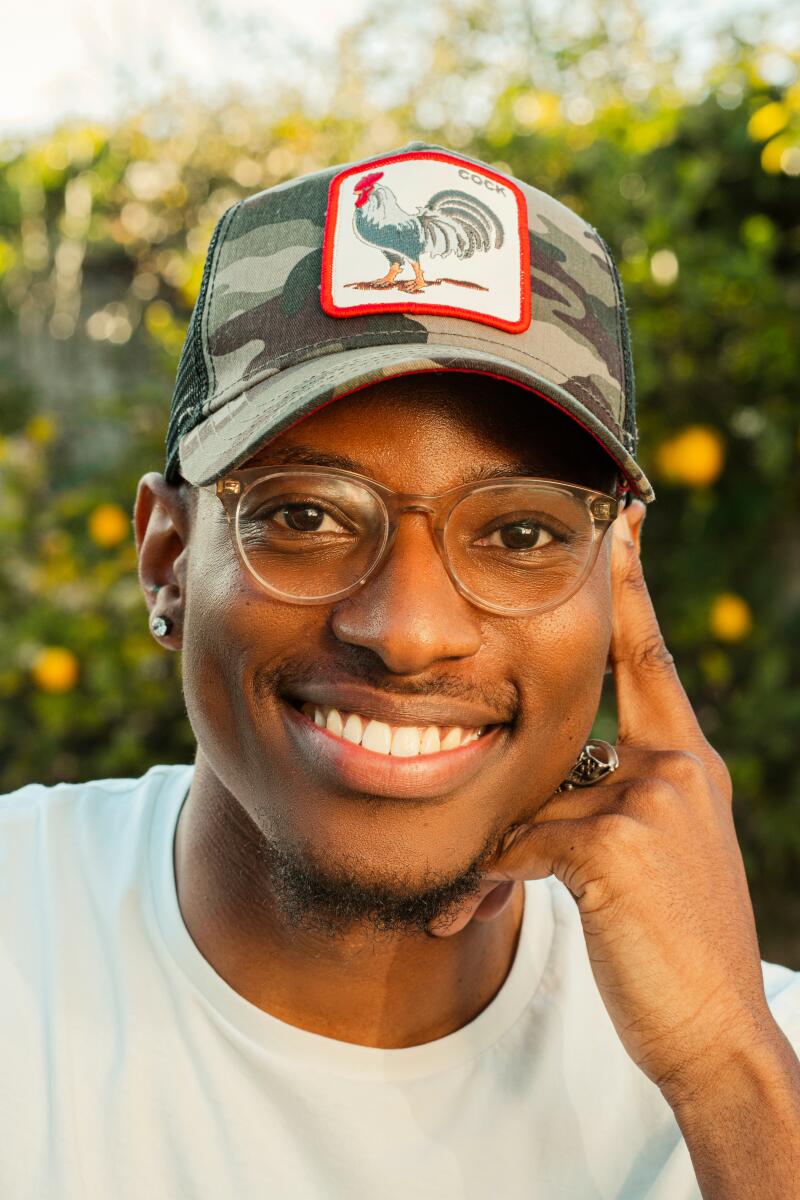
“I think my friends and I do a great job of creating a safe space for people to be who they are, and it's beautiful to see,” says founder Michael Donte.
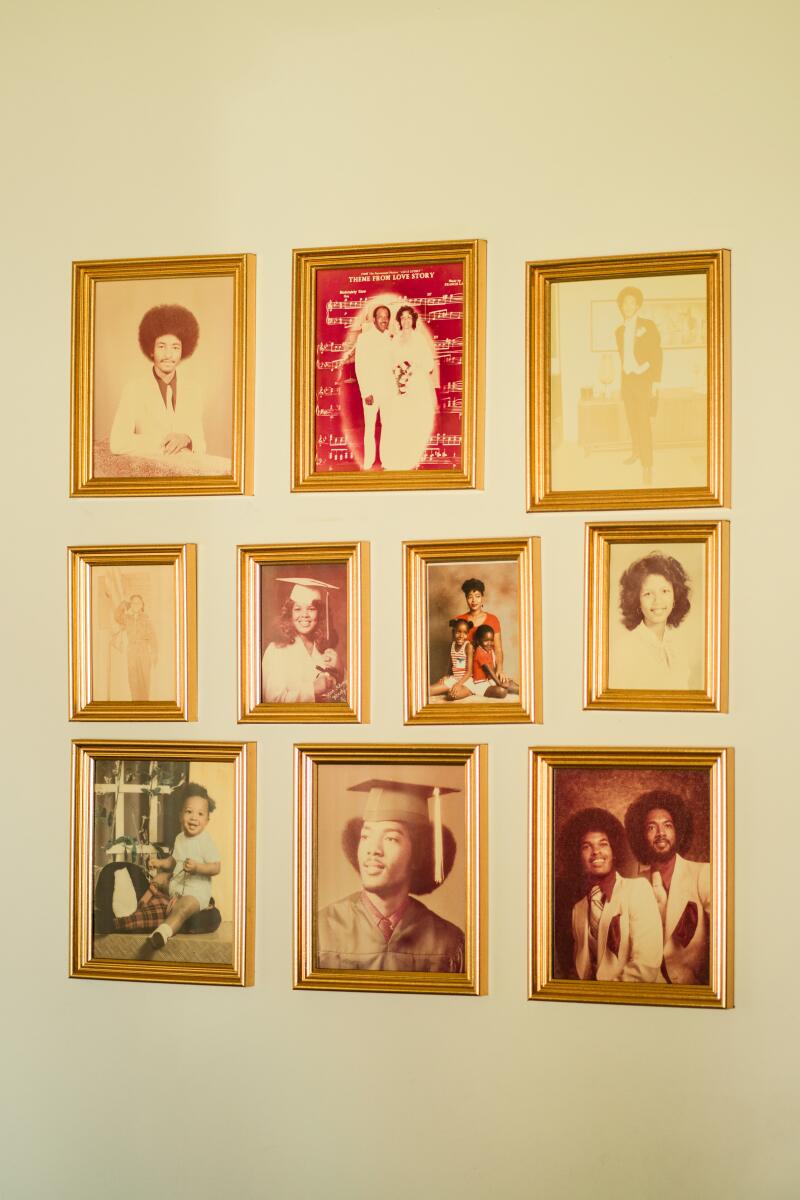
Family photographs displayed on the wall.
After being laid off last year from his job as a creative executive for YouTube Originals, Donte learned to DJ and then launched “Black House Radio” to bring the genre back home — literally — by hosting events in spaces that are vital to the Black community, like family homes, hair salons, barbershops and churches.
Donte hosted the first “Black House Radio” event the day before Thanksgiving 2023, serving collard greens and cornbread. About a dozen of his friends showed up with their own plates of traditional food, while he and three other Los Angeles DJs — No god, silhouette, DJ Bodii — provided the soundtrack for the event that lasted several hours.
Video by Kailyn Brown/Los Angeles Times; Photograph by Zay Monae/For The Times
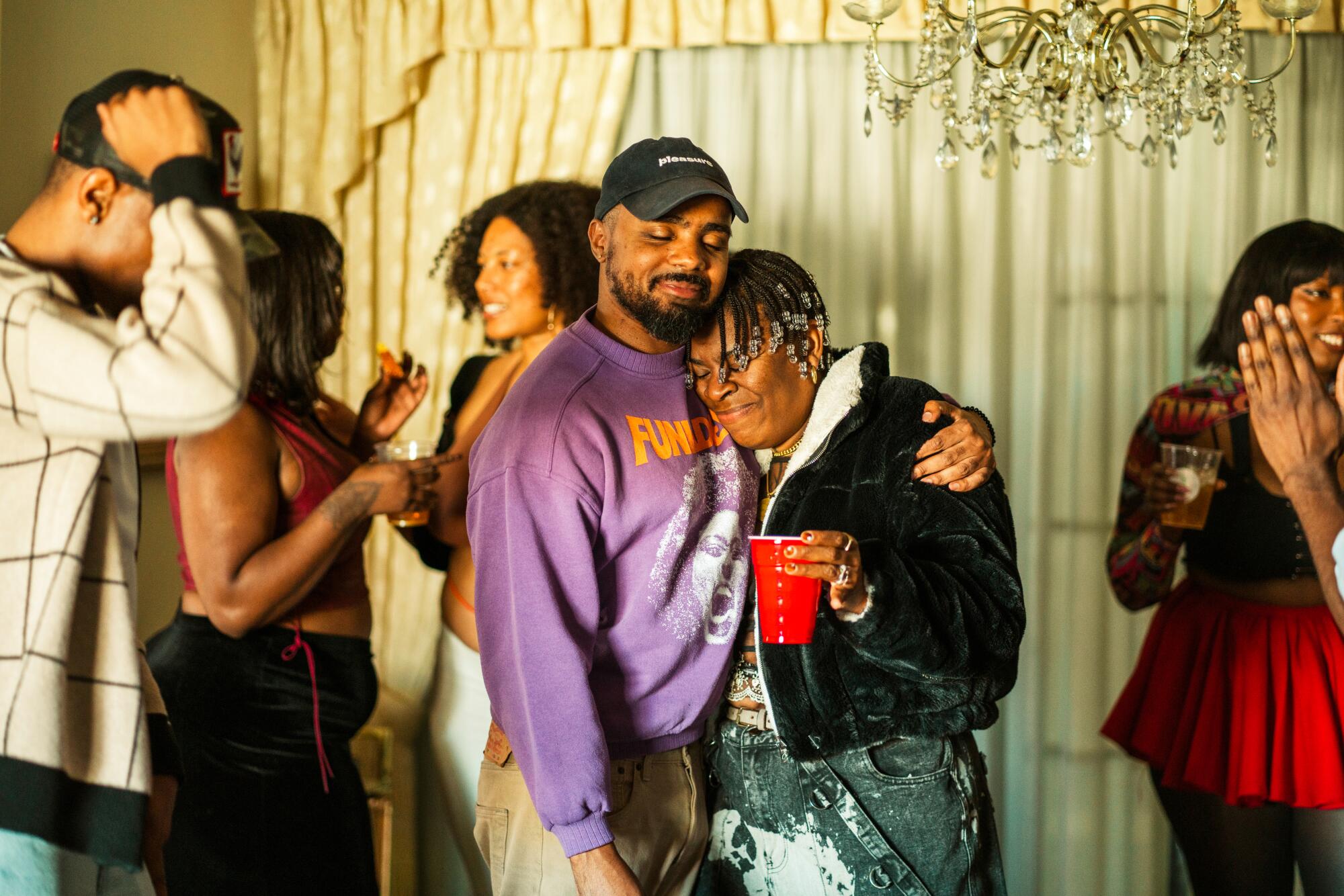
DJ Terrell Brooke and DJ Chinua hug each other.
Then in February, during Black History Month, Donte began posting live sets from that November day on YouTube, where he has since acquired over 50,000 subscribers and built a community of loyal house fans who eagerly await each release. The most-viewed video so far is a set by Ashley Younniä, which had nearly 425,000 views on YouTube by the end of June.
Some of LA's most interesting DJs have been past guests, including Terrell Brooke (founder of TheyHouse and co-creator of Casual), Mez (who hosts an event called Signal Underground), Rush Davis (singer, producer, creative director and DJ) and Chrysalis (who toured with singer Rochelle Jordan).
Shaun Ross immediately knew he wanted to be a part of “Black House Radio” when one of his friends shared their Instagram page with him.
“I feel like it’s like jumping on a bandwagon to bring back black house music,” says Ross, a celebrated model, DJ and recording artist. He has performed at two “Black House Radio” shows so far. “A lot of DJs don’t play black house music and I feel like the world has a wrong notion of what house music is nowadays, so when you play it, people think, ‘It’s not mainstream enough. It’s not giving me a Vegas-worthy show.’”
Ross says the YouTube show also gives younger generations a chance to go back in time and look at the people who are driving house music forward today. “I love that it’s black and queer, and I love that it’s healing for everyone here,” adds Ross, who hosts a house music party called “Stardust.”
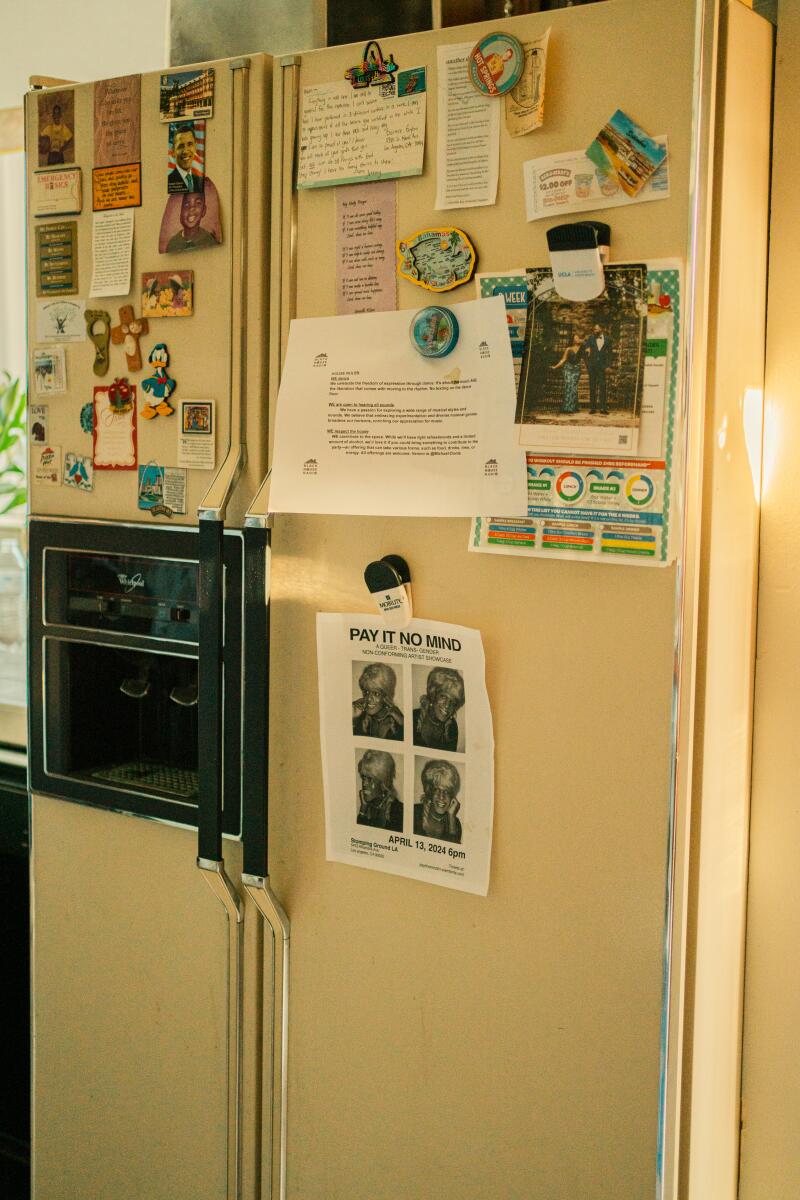
Michael Donte keeps the house exactly as it is for each of the “Black House Radio” recordings.
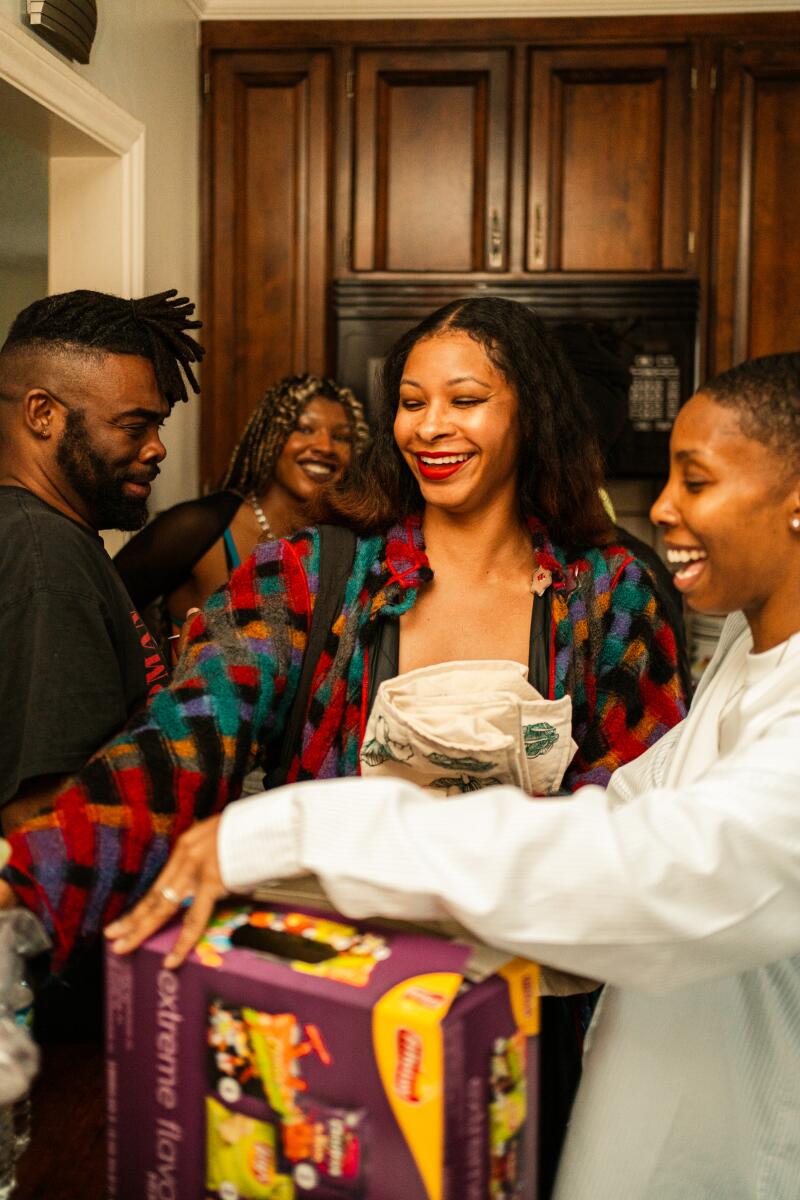
“Black House” attendees socialize in the kitchen while eating slices of pizza and homemade cake.
Back at the party, Vaughan Higgins pours himself a drink in the kitchen while other partygoers grab slices of pizza and homemade cake. Higgins regularly attends black and queer events in Los Angeles, but says being inside a black ancestral home has extra meaning for her.
“It makes me think mostly about resilience and survival,” says the Los Angeles-born musician, who decided to attend because her friend DJ Nico was playing. “The fact that this house is still in Black hands and they’re using it to bring joy to Black people, that’s part of it. It’s really beautiful.”
In many of the YouTube videos, Donte includes archival footage (some he found online and some given to him by friends) of black families dancing at barbecues or participating in praise and worship at church — his way of preserving black culture, he says.
“That's something I feel is missing in streaming video,” says Sevyn, who conducted a Great DJ set for “Black House Radio“ in April. “I feel like compared to other things I’ve done on streaming, this one has a story, and I’ve been here. This is my grandma’s house. It feels familiar.”
Though each of the “Black House Radio” YouTube sets, which typically begin in the afternoon and continue into the evening, are invitation-only due to limited space at the house, Donte has recently begun hosting public events so fans of the house can enjoy the experience offline.
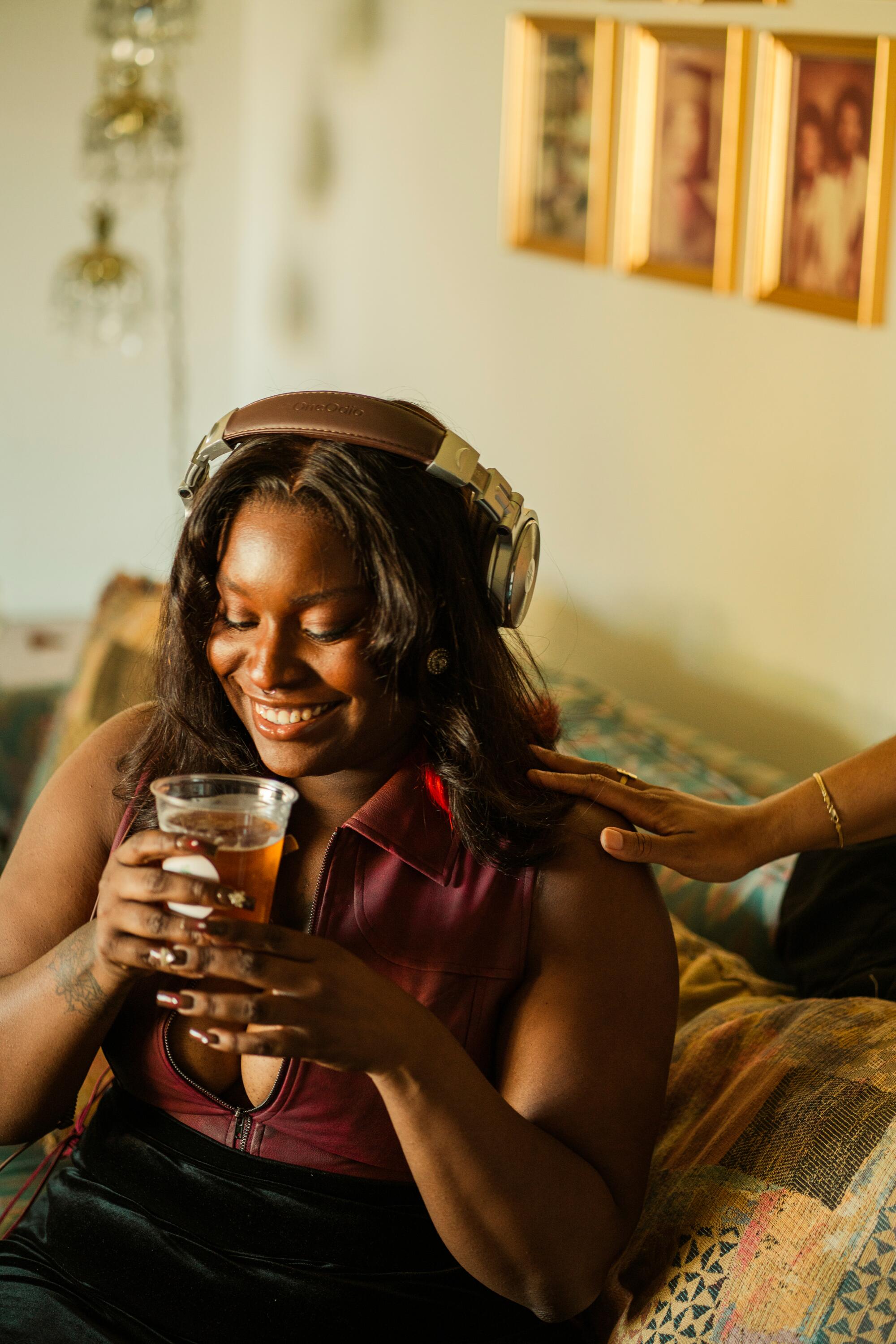
DJ Nico, a sound engineer visiting from Memphis, Tennessee, smiles between sips of cold brew from Auntie's Coffee after her set.
The first, called “Church,” was held in June at the Pico Union Project, a nonprofit housed in a building that was once Temple Sinai (built in 1909). Similar to the house functions, Donte placed framed portraits around the space, which had church pews, flameless candles and a piano. (There were also video cameras, but Donte doesn’t plan to release a video. You just had to be there.) He also has his sights set on doing a black house music festival in the near future.
When he reflects on the rise of “Black House Radio,” Donte says he believes people connect with the show because of its authenticity.
“It’s not about being unique,” he says. “It’s not about being something different or new. I want it to be familiar. I want you to be able to smell what you see on TV. You know what that house smells like. You know what the carpet feels like. You know what the food on the stove probably looks like.”
Video by Kailyn Brown/Los Angeles Times; Photograph by Zay Monae/For The Times
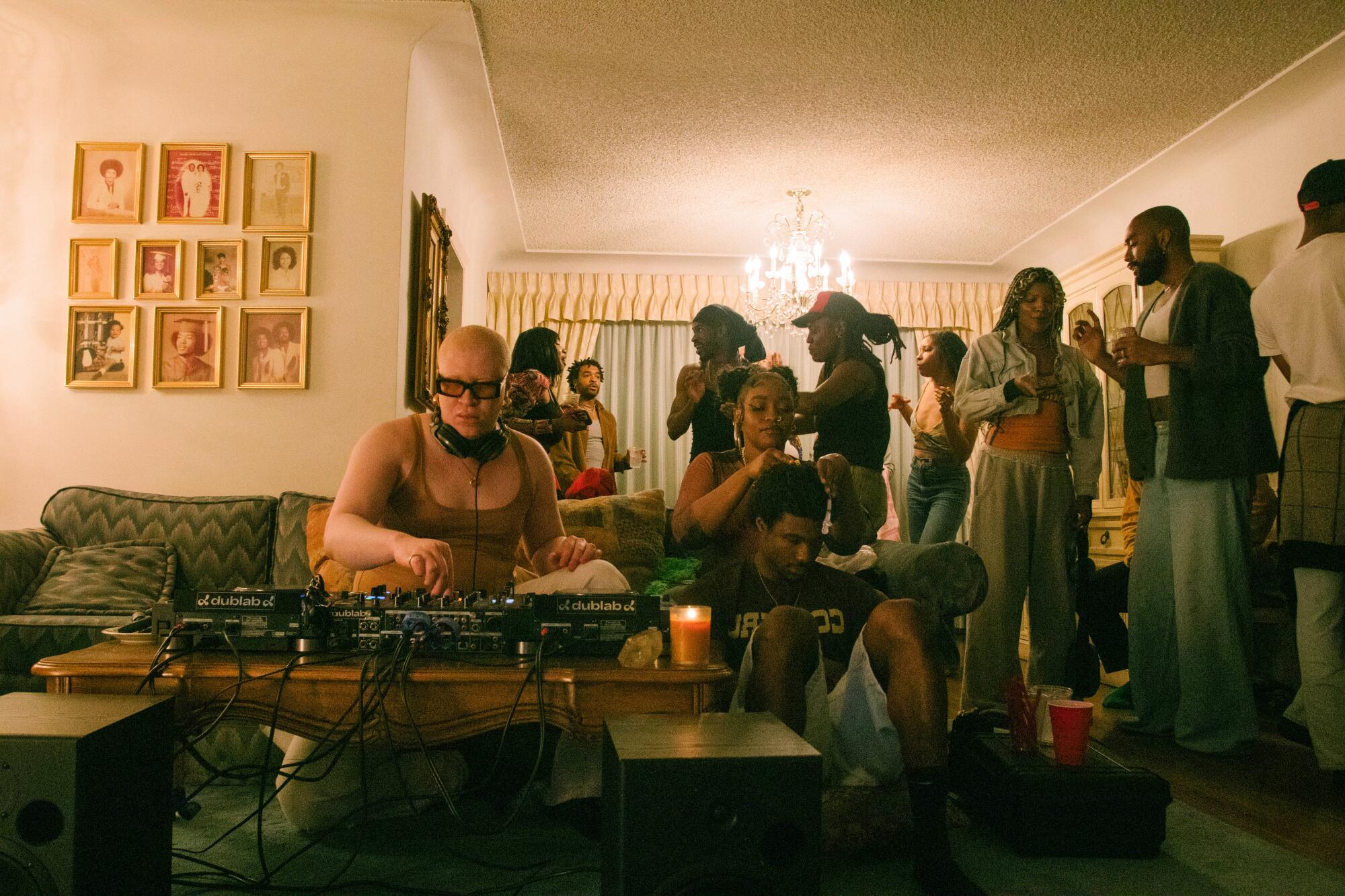
Shaun Ross on Black House Radio.
(Justin Lawson)
She adds: “I think my friends and I do a good job of creating a safe space for people to be who they are, and it’s beautiful to see.”
Around 8 p.m., as the last DJ finishes his set, a person shouts, “Let the party continue.” Donte climbs back onto the mixing board and plays upbeat house music. Two guests dance vogue in the living room, and the attendees socialize over more drinks. The cameras are no longer rolling, but no one cares or notices. They are in the company of their family. They are at home.

